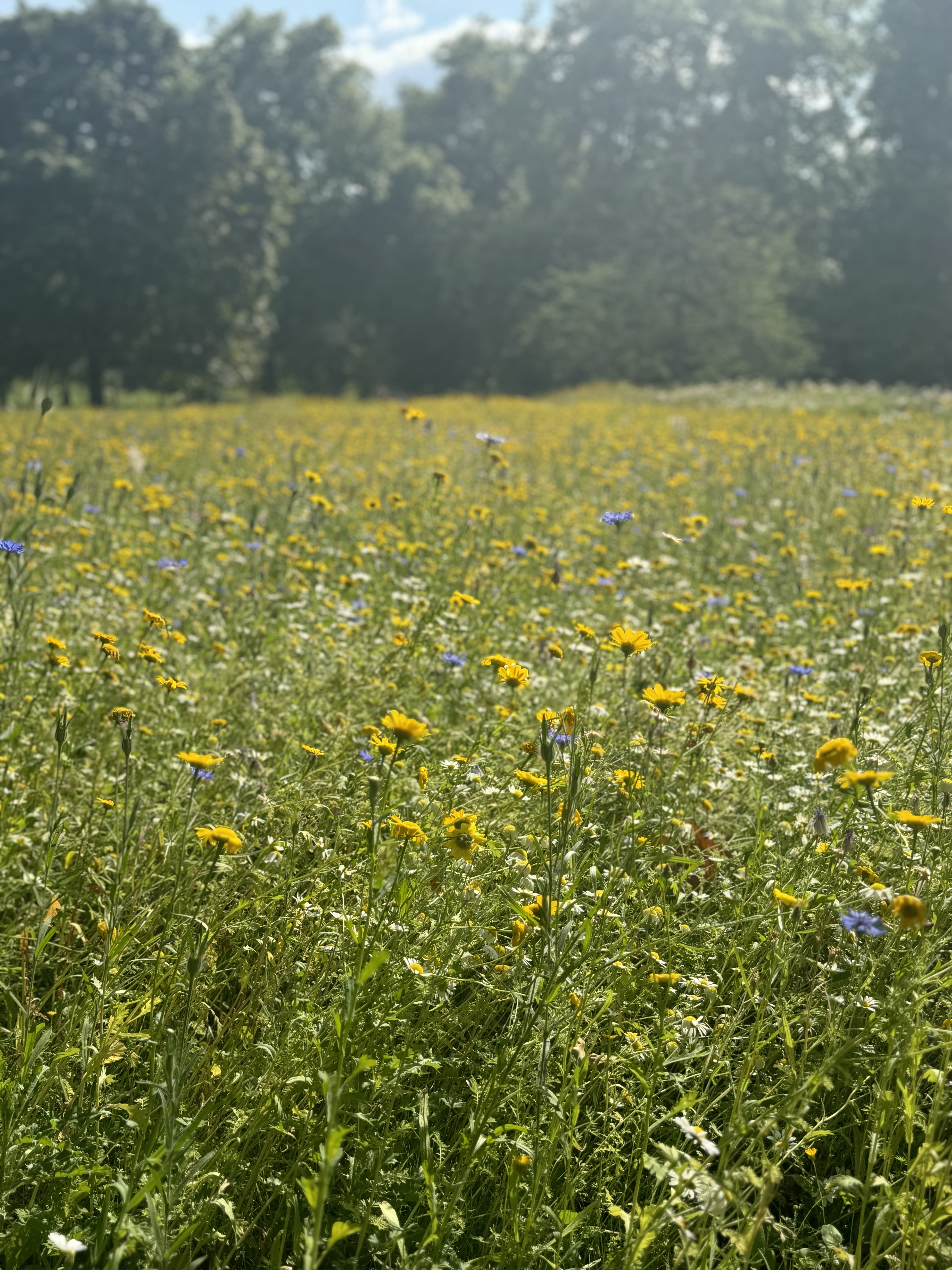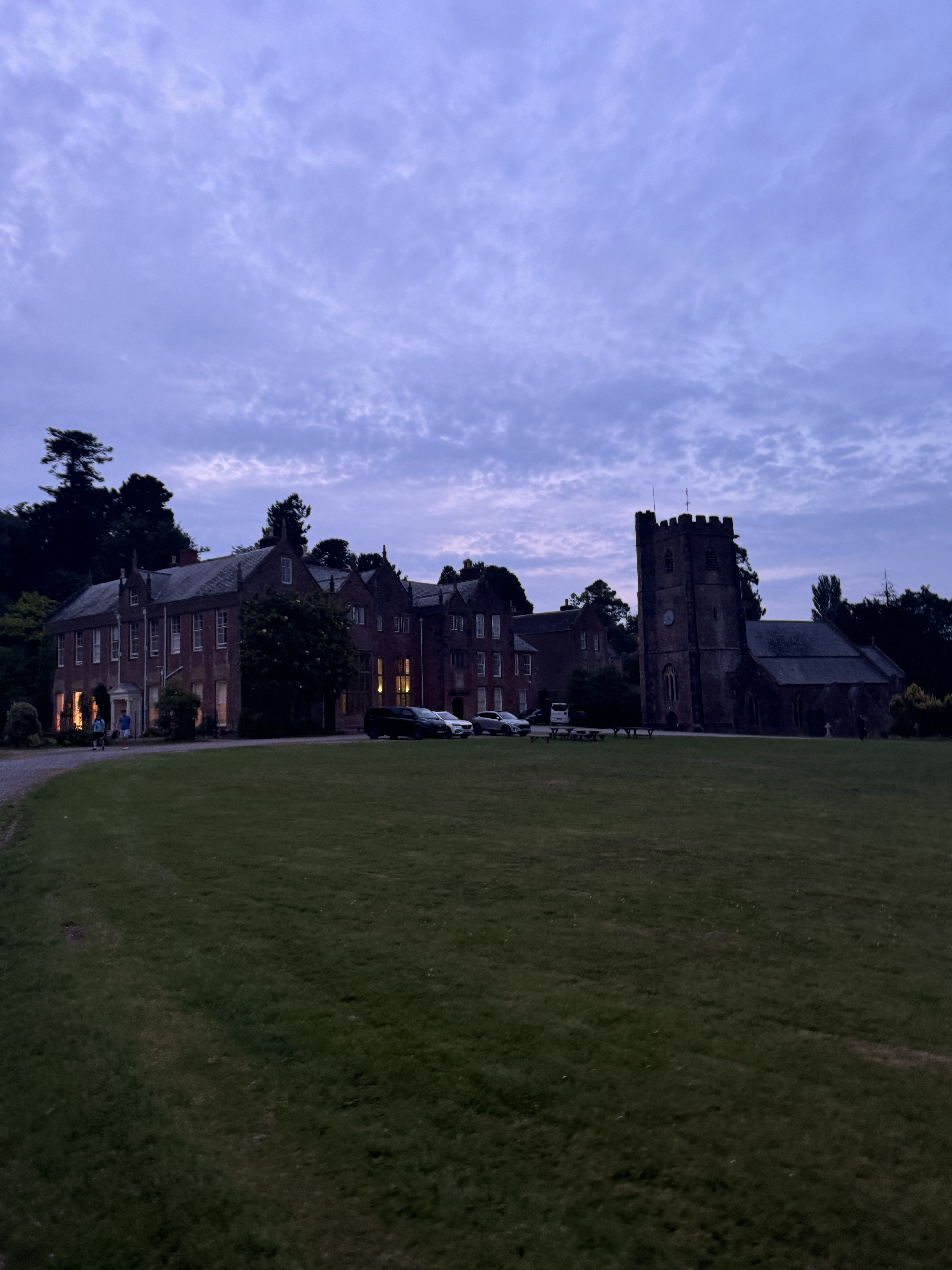(This is journal entry that has been mildly edited into a blog post)
I just got back to Pittsburgh after traveling for a little over two weeks! I went to the UK, visiting London then Somerset for PAIR (Program on AI and Reasoning), and then I flew to Irvine, CA for RoboSub 2024.
London
London was wonderful. Getting around the city was really convenient; I biked everywhere. I thought the food selection was great—in terms of availability, diversity, and quality—though pricey. The city had a pleasant energy to it, with both a modern and old feel. I really liked Chinatown and SoHo; I went there twice. Chinatown was quite small, and I suppose the Chinese community in London doesn’t really live there given its size and location, but it felt like a really dense concentration of Chinese food and shops, and that was pretty awesome. The parks were beautiful, and the weather was wonderful (though I was told I got really lucky). The tube was great too!

Flowers in The Green Park
Camp
Then, I took the train from Paddington Station to Somerset for PAIR. PAIR was an interesting experience. I can’t say I gained a lot out of it… I got COVID halfway through, and I was isolated, so I missed around half of camp; indeed, it is not part of the usual camp experience to get COVID. As opposed to the counterfactual where I continued doing research at school, I think PAIR was somewhere between 1-3x in value; PAIR was just not life-changing, that’s all. I think the networking and socializing were the biggest parts of PAIR. I thought the camp did a great job of making deep conversations and one-on-ones the social norm. I had some interesting, fun, and insightful talks with other campers and staff, and of course it was nice to get to know people and make connections with people interested in AI from around the world.

Camp venue in the English countryside
I think predictive coding and active inference was the most interesting topic I learned about at camp. It put my own robotics research into a new light. I work on generative perception and control models, and predictive coding is a generative model for brain function. Learning about predictive coding allowed me to compare my own research with the human brain in a new way, and I found that pretty fascinating. I had never thought of the human brain as a Bayesian generative model, which also puts a lot of cutting-edge ML research these days in a new perspective.
Apart from all the discussion of cognition and machine intelligence as a scientific and philsophical subject, a big focus of camp was the interpersonal and metacognitive, and that was delightful. (It’s in the name of the camp!) There were lots of discussions on figuring out ways to improve oneself, about breaking through mental blocks, and more.

Stargazing!
So those were the two biggest things I thin I gained out of camp. I think if I were a bit younger, perhaps a year or two younger, this camp could have been very valuable. I would say that PAIR is about getting young people to think deeply about what they want to do in life (in the context of AI and rationality). Developing an understanding for yourself was a big theme at PAIR, and I think I already spent much of the last few years of my life going through self-discovery, so I can’t say PAIR helped me learn that much more about myself. I appreciate the general sense of empowerment and encouraging agency, a sort of gentle reminder that we are free to think and act in this curious time period.
Because PAIR is completely free, if it seems like something you’re interested in, I would definitely check it out. To me, there was little downside in venturing out into the English countryside and thinking about life, the universe, and intelligence, so I would recommend it if you have the time and opportunity to go.
Competition
After London, I took a loooong flight to Irvine, CA for RoboSub 2024. RoboSub is a competition where teams from around the world build autonomous underwater vehicles that complete a bunch of tasks. There were a lot of sleepless nights, and a lot of hilariously dumb bugs. The competition had a lot of ups and downs, and in the end we placed 6th out of 41 teams!
Back to Pittsburgh
And now I’m back at Carnegie Mellon for my third year of college! It was a wonderful 16 days, seeing new places and talking to new people and thinking about new things, and I’m very grateful to be able to have all these experiences.